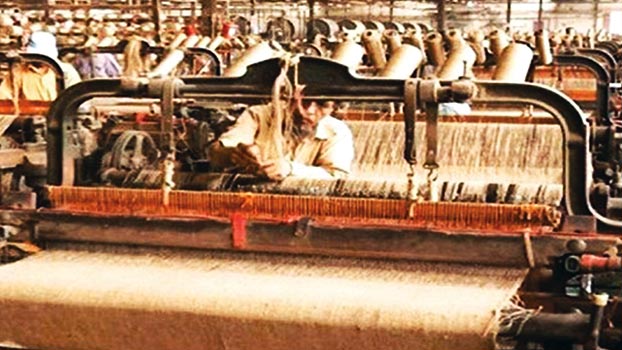25 jute mills to resume operation

The government has decided to resume operation of 25 closed state-run jute mills aiming to get better quality jute products using modern machinery and skilled workers.
The jute mills will be operated under government-controlled Public-Private Partnership (PPP) model to minimise the losses in this sector.
Discussions are underway with various government and non-government stakeholders on how to introduce more modern ways to prevent losses in jute mills.
In the discussions, priority is being given to the re-employment of young and efficient workers, use of modern machinery, and optimal use of all land in factories. Besides, there are plans to set up a jute diversification industry.
When contacted, Md Abdur Rouf, Chairman of Bangladesh Jute Mills Corporation (BJMC), told Bangladesh Post, “We’re very sincere about reopening the closed jute mills. A high-level committee, headed by Textiles and Jute Minister Golam Dastagir Gazi, is working in this regard. They will work out how to reopen the jute mills.”
The BJMC chairman said, “Two meetings have been held with stakeholders about the opening of closed jute mills. There will be more discussions. We hope to reach a positive conclusion very soon and the jute mills will be reopened.”
However, speaking at a meeting, Textiles and Jute Minister Golam Dastagir Gazi said the jute mills would be brought back to production as soon as possible by operating under PPP-model joint venture.
He said two high-level committees have started work to make recommendations on modernisation of the mills in view of the changed situation regarding BJMC’s manpower structure.
The minister further said the government is trying to ensure a fair price of the jute to encourage farmers to increase farming of the crop, once called the golden fibre of Bangladesh.
“To this end, the government is working to fix the prices, facilitate purchase and sale of jute through SMS-based system, and offer incentives for export of jute products,” he said.
Earlier, the first meeting of the policymaking committee was held on the proper use of mills and other assets of BJMC after the termination of jute mill workers under the control of BJMC.
The decisions taken at the meeting on July 23 include not selling jute mills land for any other purpose, prioritising the re-employment of young and efficient workers in starting mills and setting the government and private investors’ share in PPP mills according to land value.
Finance Secretary Abdur Rauf Talukder told the meeting that the mills lands could not be sold under any circumstances. In order to attract investment in the case of rent-based leases, priority should be given to extension of tenure, rapid inventory of matching raw materials, manufactured goods, machinery and other assets, regular monitoring of mills by BJMC, re-employment of young and efficient workers.
The election manifesto was supposed to stop the privatization and make the jute industry profitable. And so in 2009, the Awami League government restarted two closed jute mills and brought back three privatized jute mills. Five thousand crore taka was also allocated for this. In the next 10 years, the government jute mills incurred a loss of Tk 4,085 crore. Government jute mills made a profit of Tk 14.59 crore only once in the 2010-11 financial year. However, private jute mills are still making a profit.
In all, the accumulated loss of the public jute sector is now around Tk 10,000 crore. The 25 jute mills were shut down on July 2 after the process of retirement (Golden Handshake) of 24,886 permanent workers failed to bear the burden of losses.
Sources said the low productivity from old machines, the purchase of raw jute at a higher price without buying it at a cheaper price on time, the production of the same product year after year and the increased wages of the workers are the main reasons for the huge losses of the mills. One of the major reasons is the incompetence of the employees of BJMC. There are also allegations of corruption and political interference.
BJMC was formed on March 26, 1972 by a presidential order with 78 jute mills of privately owned abandoned and former East Pakistan Industrial Development Corporation. In 1981, the number of mills increased to 82. During the rule of Hussain Muhammad Ershad, 35 jute mills were run by the private sector. Capital of eight jute mills was withdrawn.
Experts said various countries are banning the use of polythene worldwide. Poly bags have been banned by the European Union. This has increased the demand for jute bags. If the opportunity is used well, it is possible to increase the export of jute products manifold.
According to initial assessment, BJMC has assets worth over Tk 25,000 crore. Besides, the factories have more than 1,200 acres of land. Total number of permanent workers in the jute mills is around 25,000. The number of transfer and daily based workers is about 26 thousand. The jobs of permanent workers will be terminated through Golden Handshake. Each worker will get taka 14 lakh to 54 lakh. Besides, 8,956 workers who have retired since 2013 as well as transfer workers will be paid their dues. The Ministry of Textiles and Jute has asked for an allocation of Tk 5,000 crore for that.




